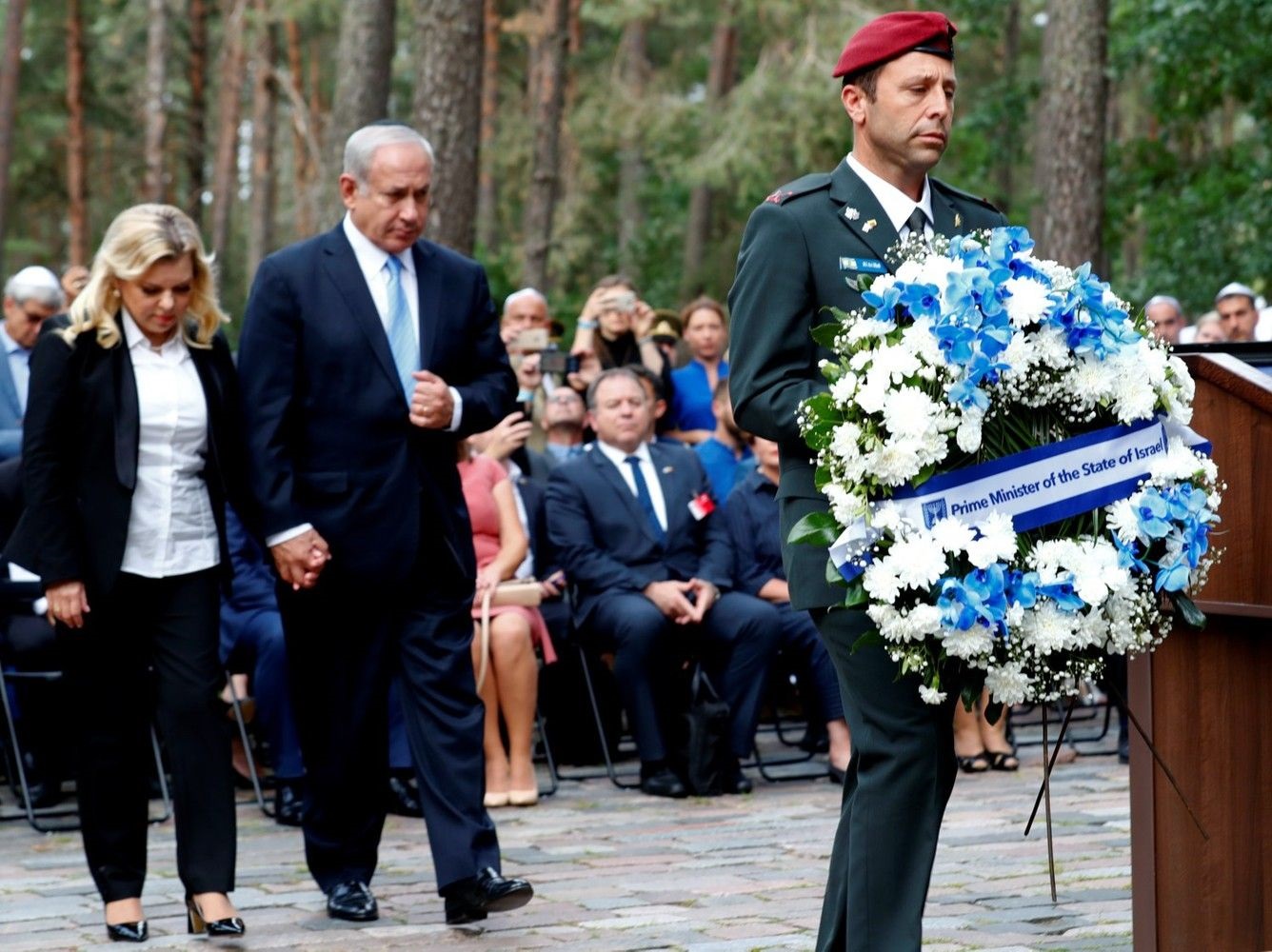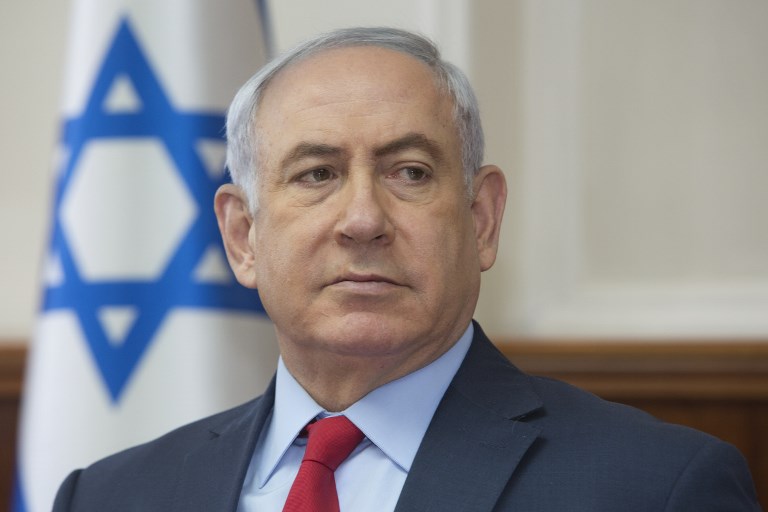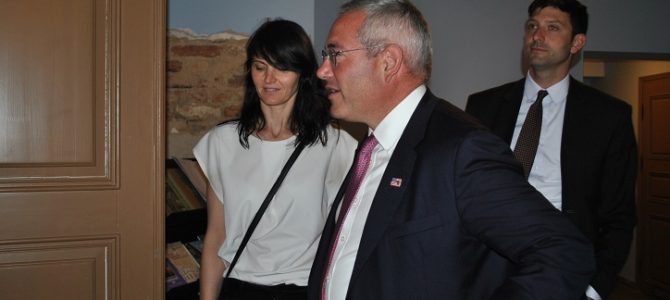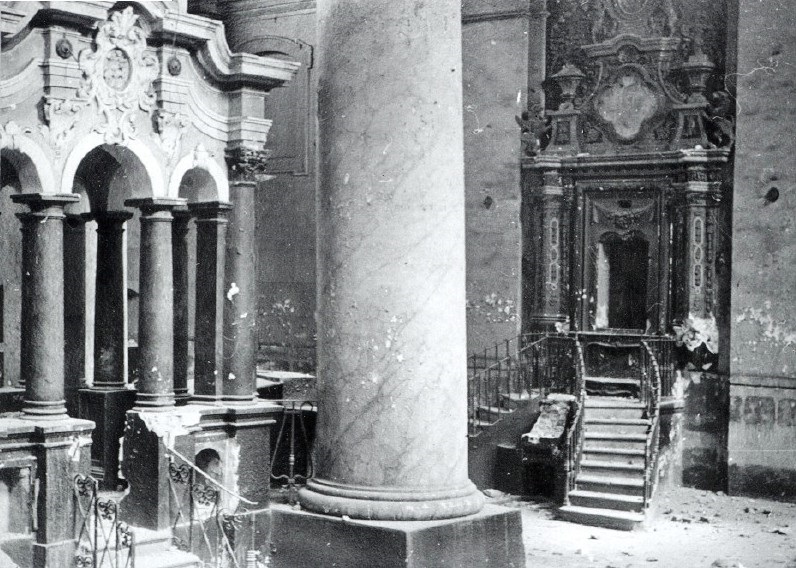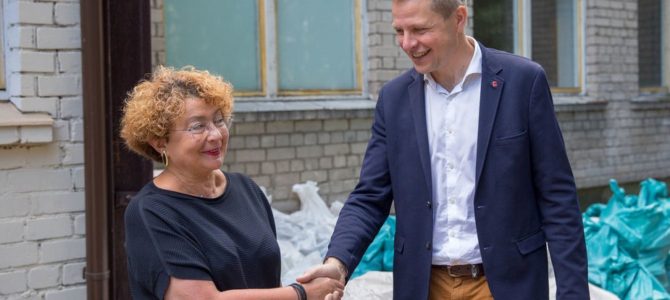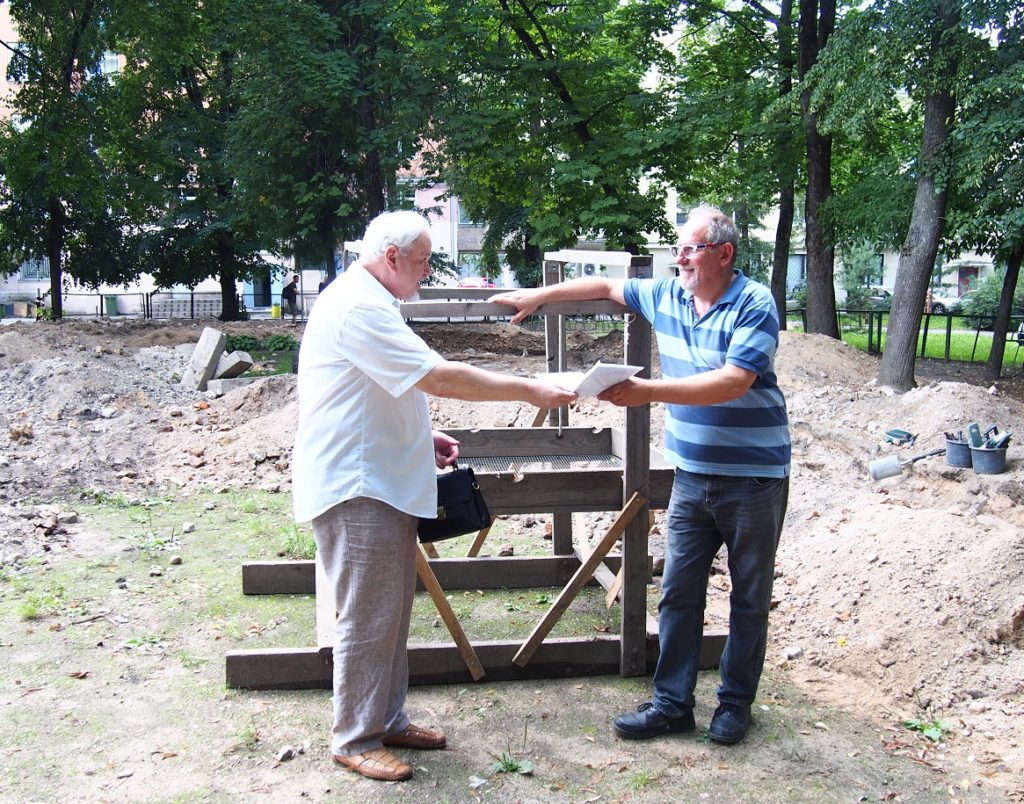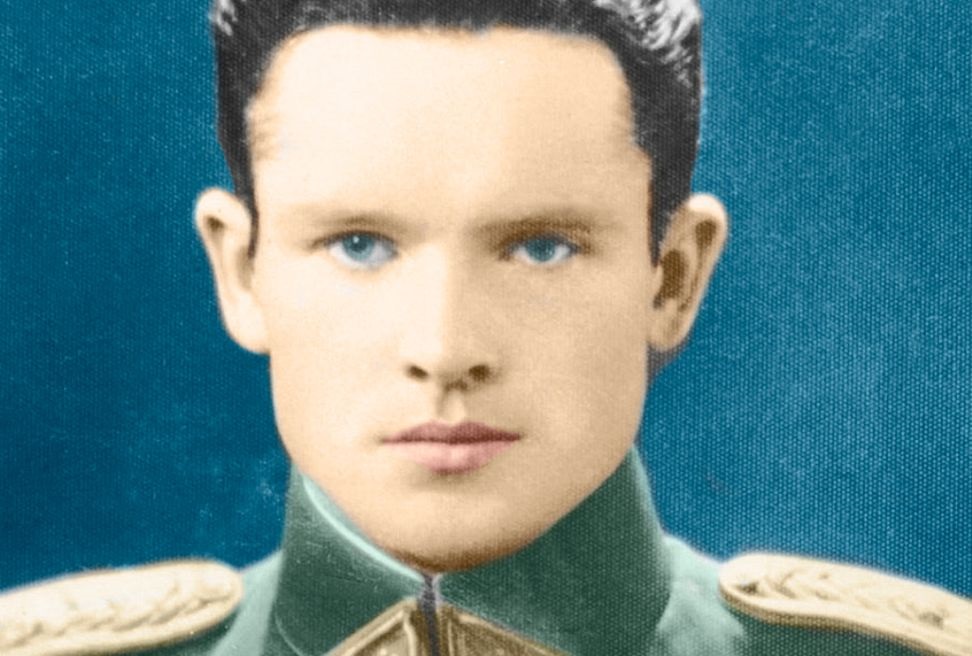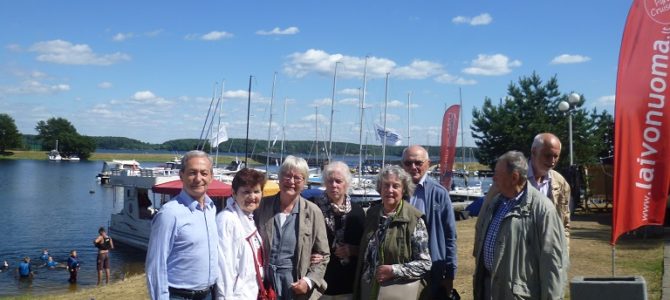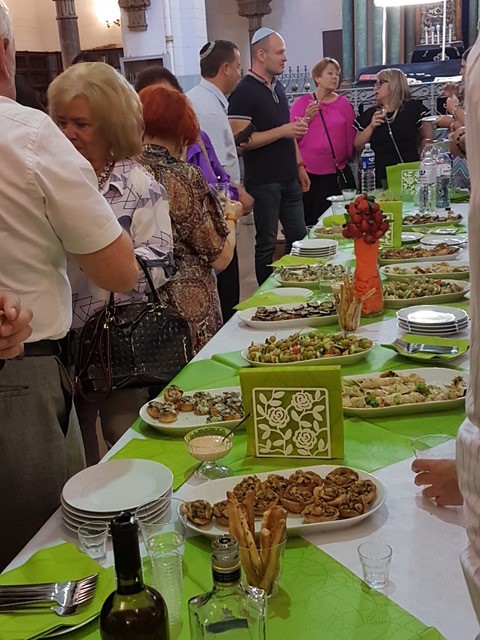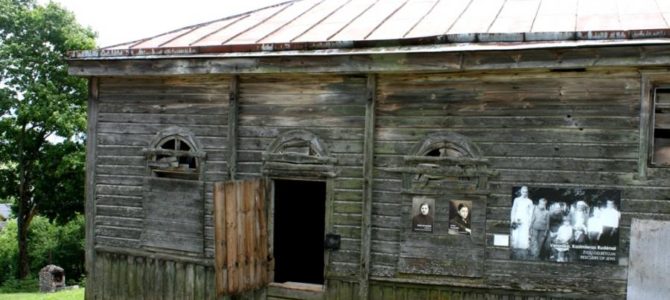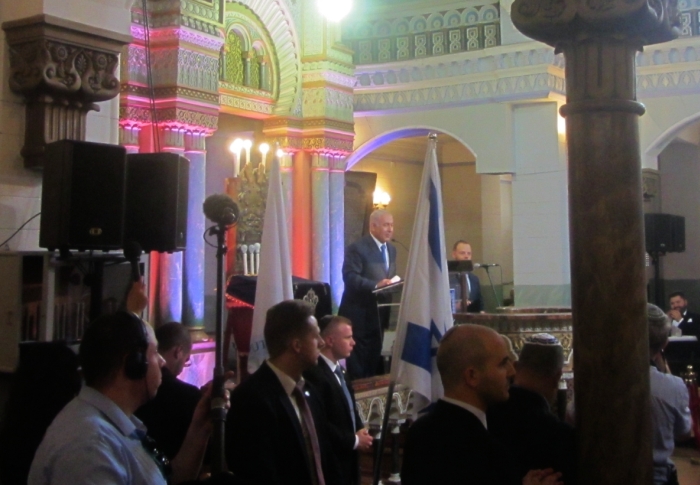
A long queue of Lithuanian Jews and friends of Israel eager to hear Israeli PM Binyamin Netanyahu crowded the sidewalk outside the Choral Synagogue in Vilnius Sunday. Scheduled to start at 11:00 A.M., Netanyahu arrived about an hour and a half late, which only seemed to increase the audience’s anticipation, with applause when he and his wife entered. The main hall and the balcony were full to capacity as Israeli and Lithuanian security scanned the crowd during the first visit ever by an Israeli prime minister to Lithuania.
Netanyahu appeared very natural at the podium, thanked everyone for coming and singled out Lithuanian foreign minister Linas Linkevičius, MP Emanuelis Zingeris, Israeli ambassador to Lithuania Amir Maimon and his wife and Lithuanian Jewish Community chairwoman Faina Kukliansky for special recognition.
In his brief address Netanyahu said he was a Litvak on both sides of his family, that he was returning to Lithuania as the prime minister of a powerful and innovative state and that he took two lessons from the Holocaust: that brutality and extremism need to be stopped as soon as they appear, and that Jews need to be able to defend themselves. He said the state of Israel was that defense. He also said Israel has many friends in the world, none greater than the United States, but that Israel has many more friends than people know, including in the Arab world. He mourned the passing of US Republican senator John McCain of Arizona. Lithuanian Jewish Community executive director Renaldas Vaisbrodas introduced the prime minister and provided an accurate synchronous translation of his words in Lithuanian.
Rafaelas Karpis performed the Partisan Hymn in Yiddish and several other songs, after which Choral Synagogue cantor Shmuel Yaatov sang a biblical passage about the loss of Israel. Rabbi Ber Krinsky thanked the prime minister for coming and expressed special support for Israel, for the prime minister and for his family. The event ended with the Israeli national anthem.


